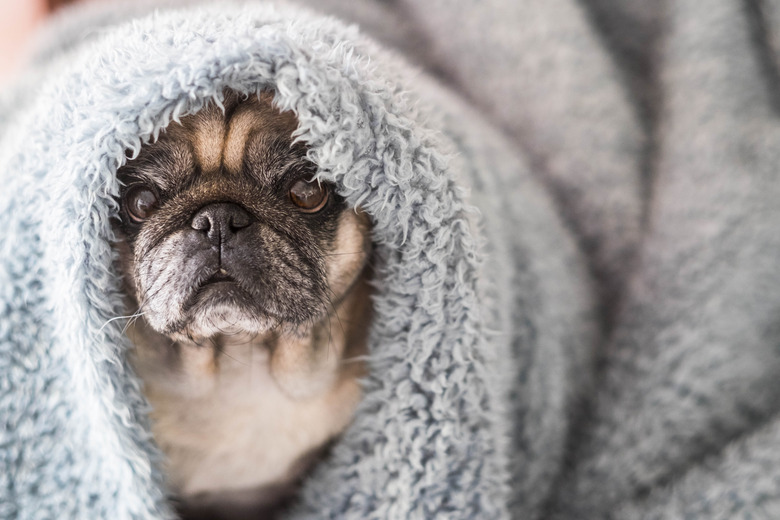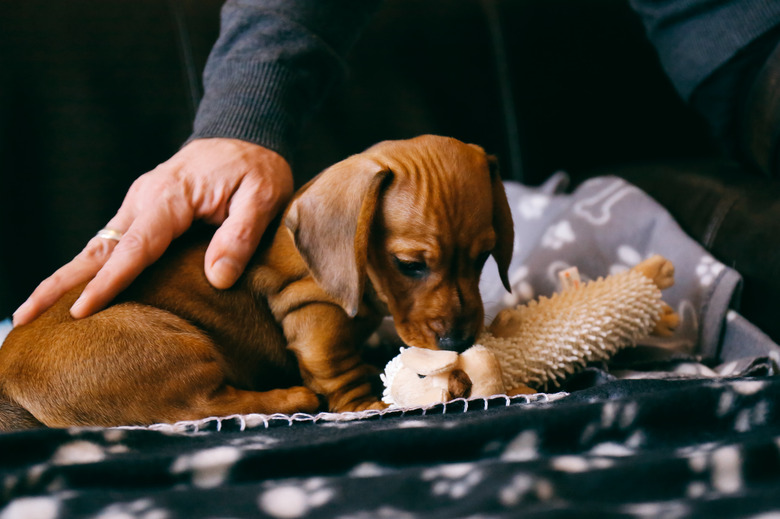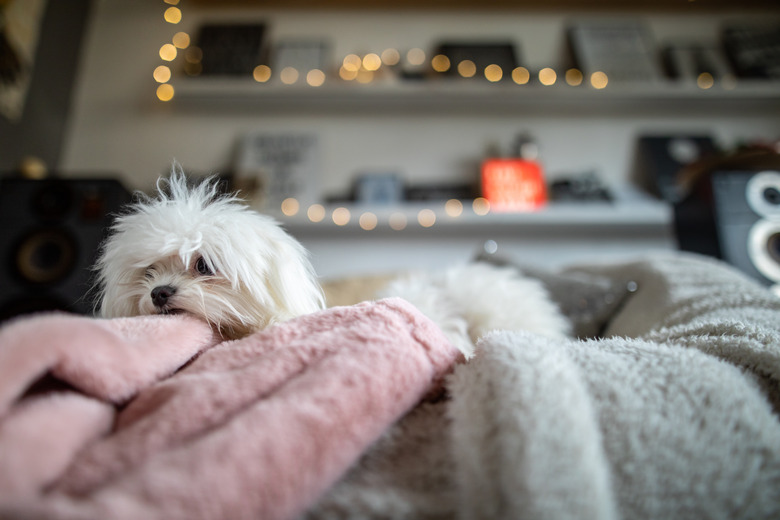Dog Chews Bedding: Why Does My Dog Chew His Blanket?
Your dog does some pretty cute things, but chewing on his blanket has got to be one of the most adorable. While it's cute, you're worried that this may not be normal behavior. Also, it's fine if he chews on the blankets you put in his crate, but you don't want him to think it's OK to chew on your nice blankets. Should you try to put an end to this habit before it gets out of control, or is this completely normal?
Why dogs chew on blankets
Why dogs chew on blankets
Dogs chew and suck on blankets because they're trying to fill a need they had as a puppy: nursing from their mother. Sometimes, if a dog was not properly breastfeed and weaned, they dog will turn to objects to suck and chew on that remind him of his mother. For example, if a pup was orphaned and always bottle-fed, later on, he may try to nurse from another dog or turn to a blanket instead.
Some other reasons your dog might be chewing on objects like blankets include anxiety, teething, and hunger. Your puppy starts teething around six months of age and will turn to objects to chew to help relieve his pain. When you leave the house, your dog may experience separation anxiety and start chewing on anything to relieve his worries. If you have a blanket that smells like food, your dog could smell that and start chewing it in order to not feel hungry anymore.
How to stop your dog from chewing on his blanket
How to stop your dog from chewing on his blanket
The best first step is to look at when your dog is chewing on his blanket. Does it occur when you leave the house, or perhaps around mealtime? Also, factor in how old your pup is; he may just be teething and need dog toys and ice cubes to help eliminate the pain he's experiencing.
Instead of reprimanding your dog for chewing on his blanket, give him new toys to enjoy instead. Get a collection of a few different toys together and then swap them out every few days so your pup doesn't get bored of them. If you catch him in the act of chewing on his blanket, then gently remove it from his mouth—as long as he isn't aggressive or growling at you—say "uh-oh" in a calm voice, give him a toy, and praise him for chewing on that toy.
Making sure you're feeding your dog a nutritious diet and giving him at least 30 minutes of exercise per day is also important. If it's a separation anxiety issue, you may need to hire a dogsitter to take him out during the day when you're not home, or hire a trainer to help you teach your dog how to cope when you're gone.
Chew-proof dog blankets
Chew-proof dog blankets
Along with training your dog, there are also chew-proof dog blankets you can purchase, like the Tough Dog Blanket Tarp. You can also shop on a site like Indestructible Dog, which sells items specifically for dogs with strong jaws and negative chewing behaviors.
If you don't want to buy a new blanket, you can also buy or create your own chewing deterrent spray with 2 cups of apple cider vinegar and 1 cup of white vinegar. You can spray it on the blanket and anything else that you want your pup to stop chewing. The bitter taste will discourage him from going after certain objects.
When it comes to any abnormal behavior, you should always consult your veterinarian to ensure your dog isn't having a medical issue. While chewing on a blanket is normal for a puppy, if your dog suddenly starts doing it when he's older, there may be something else going on. Your vet may also be able to recommend training tactics or a nearby dog trainer to help you curb this habit.
Conclusion
Conclusion
Dogs may chew on blankets for several reasons, including anxiety, teething (if the dog is a puppy), hunger, or attempting to fulfill a need to nurse leftover from their puppyhood. Blanket chewing is a common behavior and can be stopped by providing appropriate alternatives for your dog to chew on. You can also buy chew-proof blankets as well as chewing deterrent spray.
As with any behavior, if your dog starts chewing on blankets and it's a new behavior for them, it's a good idea to call your vet to make sure the new behavior is not caused by a medical problem.


